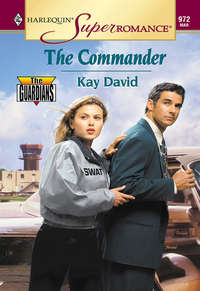
Полная версия
Silent Witness

Andrea headed toward the backyard
At the first window she came to, she cupped her hands against the glass and peered in, but the view was blocked by stacked boxes. She continued to the back door, where she knocked loudly.
She banged on the door two more times. Finally, when it was clear no one was going to answer, Andrea grabbed the doorknob and jerked it sharply. As it had in her childhood, the latch opened. She shook her head. How many times had she and her sister snuck inside after curfew using that very same trick?
She called out. “Vicki? It’s me. Are you in here?”
Andrea had been a paramedic for almost six years. She’d worked east Los Angeles and had gone into countless situations following 911 calls. Most of them were routine. Some of them were false alarms. But the minute she arrived on scene, she always knew if something was truly wrong. She wasn’t sure how, but she could tell. The air vibrated in an odd way and even the light seemed different to her. Her co-workers had teased her at first, then had come to depend on her.
She was two steps into the kitchen when she froze.
Something in this house was wrong.
Very wrong.
Dear Reader,
When I was in the first grade, I stopped talking. This will come as a surprise to those who know me now, but it is the truth. My family moved in the middle of the school year, and after I joined my new class, where I knew no one and didn’t really want to know anyone, I decided I would no longer speak.
My mother and father accepted the news with the same equanimity they gave almost every crisis in our household. No one got hysterical or rushed me to the doctor or even made a big deal out of my silence. I talked at home, you see; I just wouldn’t say anything at school.
As the weeks went past and I continued my boycott on words, my mother, God bless her soul, sensed my loneliness. Every day in my lunch box I would find a note from her. As I ate my ham sandwich—always on white bread with the crusts cut off, please—I would read her letters.
Looking back, I ask myself, how did she have the time? My sister was in high school then, my brother in diapers. Surely she had more important things to do than write her stubborn seven-year-old love letters.
If you were to ask me why I did what I did, I wouldn’t be able to explain, but by the end of that school year I decided to talk again. Thirty years passed before I learned other children do the same thing, and now there’s even a name for the condition. It’s called Selective Mutism. Strangely enough, all the articles I’ve read tell parents not to panic or make a big fuss. The experts say it will pass in time and it generally does.
When I sat down to write Silent Witness I knew I wanted to tell the story of a child who chose not to speak. In my book, Kevin has a much more traumatic reason to stay quiet than most children, but in a child’s world, everything is relative.
I hope you enjoy reading this story as much as I enjoyed writing it.
Kay David
Silent Witness
Kay David

www.millsandboon.co.uk
This is a special thank-you to all the dedicated teachers who have helped me through the years and continue to do so. Two in particular, Dan Chaney and Linda Winder, stand out because of their tireless efforts and endless patience. One taught me how to read and the other taught me how to write. I’ll always be grateful.
CONTENTS
CHAPTER ONE
CHAPTER TWO
CHAPTER THREE
CHAPTER FOUR
CHAPTER FIVE
CHAPTER SIX
CHAPTER SEVEN
CHAPTER EIGHT
CHAPTER NINE
CHAPTER TEN
CHAPTER ELEVEN
CHAPTER TWELVE
CHAPTER THIRTEEN
CHAPTER FOURTEEN
CHAPTER FIFTEEN
CHAPTER SIXTEEN
CHAPTER SEVENTEEN
CHAPTER EIGHTEEN
CHAPTER ONE
THEY SAY YOU CAN’T go home again. But invariably something draws you back to the place where you grew up.
Andrea Hunt turned her Jeep onto Beach Road and wondered what that something was. A desire for reassurance? A quest for lost youth? The chance to do things over?
She didn’t know, but when she’d had to leave Los Angeles or lose her mind, Andrea had instinctively headed for Courage Bay. She had needed to heal her hurts and think about the direction her life should take. Home had been the only choice. The sparkling bay waters and sandy white beaches of southern California offered a refuge like no other.
Now, Andrea’s older sister, Vicki, had followed her lead and come back to Courage Bay, too. And her situation was truly awful.
Andrea had to regroup, but Vicki had come back because her life had fallen apart big-time. She’d gone through a disastrous marriage, then an even more disastrous divorce and now she had no job, no husband and no plans. The only bright spot in her life, she’d told Andrea, was Kevin, her six-year-old son.
Turning right, Andrea drove up the steep road to the house where she and her sister had grown up. A few years back, their mom and dad had bought a home higher up one of the cliffs, but they’d kept the bungalow fully furnished and rented it. When Vicki had announced her homecoming, the place had been empty, and they’d insisted she take it for herself and Kevin.
For a second, Andrea considered how it would feel to live inside those cool stucco walls again. Like all the other paramedics in Courage Bay, she stayed at the fire station while she was on duty, her standard shift that of the fireman, twenty-four on and forty-eight off. For her free days, she had leased a tiny house that had come with an even tinier backyard and patio.
But it might be nice to have her own house someday. Along with her own family. And a husband who would never cheat on her.
She gunned the SUV and made it up the final hill, reminding herself to stay in the moment, the advice of her L.A. shrink echoing in her head. She had seen the doctor for several months right after her breakup with Brian, her latest—and biggest—mistake. The therapy had helped but Andrea wasn’t fully convinced history wouldn’t repeat itself; the only kind of men she seemed to hook up with were the wrong kind.
Pulling up next to the curb, Andrea parked her Jeep behind Vicki’s still-packed Toyota and cut her engine. When she had phoned last night and volunteered to help her sister unpack, Vicki had eagerly accepted. She could use the extra hands, she had said. Then in her next breath, reverting to the roles they had each played before, she’d confessed she needed Andrea’s advice even more.
The two sisters hadn’t been close since Vicki had married. Although they’d both lived in L.A., distance and lifestyle had separated them, their personal and career paths taking them in completely opposite directions. When they’d talked, however, Vicki had sounded as eager as Andrea was to renew the relationship they’d had as kids. Back then, they had been almost inseparable, most strangers assuming they were twins because of their looks. The similarities had stopped there, though.
Unsure of herself and desperate to be popular, Vicki had constantly gone to Andrea for support and counseling, never quite sure of how to proceed, regardless of the fact she had been the older by two years.
Andrea had been just the opposite. Independent (exactly like their father, according to their mother) and stubborn (exactly like their mother, according to their father), she’d been the protector and leader.
Despite that background, Andrea didn’t feel much in charge of anything these days and any advice she might give her sister would be questionable, at best. Especially where men were concerned, be they six or sixty-six.
She knocked on the front door, the screen banging under her knuckles as the sound of Mrs. Moore’s wind chimes drifted over on a fresh sea breeze. The retired schoolteacher had been the Hunts’ neighbor for as long as Andrea could remember. She had also been a constant source of sugar cookies for the two sisters. Andrea turned to see if the elderly woman’s ancient Beetle was there, but her driveway was empty.
As empty, it seemed, as Vicki’s house.
Andrea rapped on the door again, her impatience growing as she wondered why she was surprised. Unlike Andrea, Vicki never had trouble living in the moment. For her, the future was a vague concept and the past didn’t even exist. Andrea loved Vicki but admitted that her sister could have just as easily woken up this morning and decided to take the bus back to Los Angeles.
Andrea left with a huff. Halfway to her Jeep, she started thinking and her footsteps slowed.
She was irresponsible and flighty, but Vicki really cared about Kevin. Reluctant to discuss all the details, she’d told Andrea over the phone he was one of the major reasons she had returned to Courage Bay. He had a problem, a serious problem, she’d said, and it needed to be addressed.
“Kevin stopped talking the day Grant walked out on us,” she’d explained. “He talks at school, but he won’t talk at home. To me. His teachers said the condition isn’t that unusual and they even have a name for it. It’s called selective mutism, but it’s so frustrating….” Her voice had become bitter, an attempt to hide the obvious hurt. “I could kill Grant Corbin, Andie. This is all his fault! I should never have married that man!”
She’d gone on about the breakup of her marriage, the words spilling out in a rush she had been unable to contain.
“He cheated on me, Andie. He had a girlfriend and everything! When I found out, I went ballistic. She was a cop he worked with—redhead. I’m afraid Kevin knew what was going on even though I tried to keep it from him.” She’d cursed again then continued fuming. “Grant just walked away. He never even came back to visit with Kevin. Never even called!”
Without further thought, Andrea returned to the house. Disregarding the front porch this time, she headed to the backyard. At the first window she came to, she cupped her hands against the glass and peered in but the view was blocked by stacked boxes. She continued to the back door where she knocked loudly, the faint sound of a radio lingering in the hot, stagnant air.
She banged on the door two more times. Finally, when it was clear no one was going to answer, Andrea grabbed the doorknob and jerked it sharply—to the right and down. As it had in her childhood, the latch opened. She shook her head and grinned. How many times had she and Vic snuck inside after curfew using that very same trick? They had always kept the hinges well-oiled but they squeaked loudly now as she stuck her head inside and called out. “Vicki? It’s me, Andrea…. Are you in here? Hello?”
Andrea had been a paramedic for almost six years. She’d worked east Los Angeles and had gone into countless situations following 911 calls. Most of them were routine. Some of them were false alarms. But the minute she arrived on scene, she always knew if something was truly wrong. She wasn’t sure how but she could tell. The air vibrated in an odd way and even the light seemed different to her. Her co-workers had teased her at first, then they’d come to depend on her.
She was two steps into the kitchen when she froze.
Something in this house was wrong.
Very wrong.
GRANT CORBIN HAD thought he would grow accustomed to the solitude, but a full year had passed since Vicki and Kevin had left and the place still felt empty and cold. He could never get comfortable, either. Looking around the half-empty room, he shook his head wryly.
Maybe if he had some furniture, things might be different.
Then again, maybe not.
Spending the money to replace what Vicki had taken had struck him as foolish and spending the time to select new things, impossible. Detectives in Los Angeles were usually short on the first and had none of the second, and Grant was no exception.
He crossed the living room and went into the kitchen, which was even less equipped for its purpose than the living room. The essentials were present, though, he told himself, reaching inside the refrigerator’s freezer. When a man had a fifth of cold tequila, he didn’t need anything more.
Perching on the one bar stool he’d kept, Grant twisted off the top of the bottle and took a long swig, holding the frigid alcohol in his mouth as he closed his eyes. He wished he could numb his brain as easily as he could his tongue, but it never worked that way. He’d tried, Lord knew he’d tried, but so far he hadn’t found a bottle big enough to make that happen.
Opening his eyes, he swallowed and the freezing Cuervo slid effortlessly down his throat. Then he saw the bear.
The goddamn bear.
For some ridiculous reason he couldn’t recall right now, he’d decided to clean the bedroom closets a week ago. He’d found the stuffed animal upside down on one of the shelves in the very back. He’d almost thrown it away, but then he’d remembered that the guys at the station kept some toys around to hand out when a child was brought in. Grant had fingered the tattered little bear, then set it on the kitchen counter to take with him the next day.
But the next day, he’d forgotten. And the day after that, he’d done the same. Finally, he’d been forced to admit the truth. He didn’t want to get rid of the toy. He wanted to keep the damn thing because it was all he had left of Kevin.
Another mouthful of tequila went down, then he cursed out loud as the phone rang. He thought about ignoring its persistent call but he was a cop and cops didn’t have that luxury. He picked up the receiver and grunted.
“Corbin? Get your ass down to the park. We got a dead gangbanger who was a bagman for Jaime Sanchez, that dealer over on Fourth who’s been giving us hell. The first O says some of his buds are there and they want to talk.”
Parker Richmond didn’t bother to identify himself because he didn’t need to. Another detective in Hollenbeck, he and Grant had graduated from the academy at the same time and had been friends through four divorces, three lawsuits, and two near-miss gun battles, one a holdup that went bad and the other, a domestic that went violent.
“I just got home,” Grant said.
“Then you still have your coat on.” Parker’s deep voice rang down the line. “C’mon, chop-chop.”
Grant looked down. He did indeed still have on his coat.
“Screw you,” he said pleasantly. “And the dirt-bag. I’ve got a cold bottle of Cuervo and I’m not going anywhere until I see the bottom of it.”
“Then drink fast. I expect you here in fifteen minutes.”
Parker hung up without another word, and Grant followed suit, rising to place the bottle back into the freezer with a pat. He and Parker both knew his protest had been automatic. He would take a murder any day of the week over a night at home by himself. Or a night out with friends, for that matter. Without a wife and kid, Grant no longer worked to live, he lived to work.
Passing by the teddy bear, he picked it up and held it to his nose. The little-boy scent he wanted to smell wasn’t there so he brushed a knuckle over its plush back when he set it down. His steps were heavy as he closed the front door behind him.
ANDREA STOOD in the middle of the kitchen and listened to the silence around her. The radio had been playing music but now a taped commercial came on. She could only hear part of the words as the signal faded in and out. “…on the beach today…hope you’ve got that sunblock handy…another scorcher with a high of ninety-five and a low… The ozone level will be…”
Directly ahead of her, the kitchen opened up into the dining room and that area merged into the living room. If she turned left, she’d go down the hall that led to the bedrooms. She hesitated but only for a moment, her footsteps pulling her toward the large rectangular table on which her mother had served countless Sunday roasts.
The dark wood had a gloss so beautiful Andrea immediately knew her mom must have come over to clean. No one else could make the finish shine like that. The mirrored wall behind the buffet gleamed just as brightly. Glancing beyond the furniture to the wall of taped boxes beside the windows, Andrea read some of their haphazard labels. Kit. Bed stuff. Toys. If Vicki had unpacked anything last night, it wasn’t in this part of the house. Andrea called out her sister’s name again but no one answered.
When she entered the living room a second later, Andrea knew why. She gasped, her words half-curse, half-prayer. “Oh my God…”
Like a dinosaur that couldn’t get up, her grandmother’s huge mahogany armoire had fallen over. Its doors hung open uselessly, like broken limbs, their beveled inserts shattered, bits and pieces of molding and hardware strewn about the room as well as shards of broken glass.
All at once, a bit of white caught her eye. Underneath one of the cracked planks, something glowed, something with a small red bulb embedded in the center. When she realized what she was looking at, Andrea felt her knees wobble.
It was a shoe, a kid’s tennis shoe, the kind with a little light on the heel that flashed when the child moved.
Only this light wasn’t flashing.
Crying their names, she dropped to her knees to peer under the armoire. “Kevin? Vicki? Oh, God! Are you guys under there?”
She caught her breath as she heard a moan.
“Vicki?” she said, her voice high and frightened. “Is that you? Are you beneath the cabinet? Answer me!”
Her command was frantic but it elicited only silence. She tried again and got the same answer.
Rocking back on her heels, her gaze taking in more details, Andrea told herself to be calm. There had to be a way to get beneath the mess. She needed to do that first. After a second’s study, she knew what to do. The chest was so big, it’d actually wedged itself against the opposite wall, about three feet up. If she was careful, she could climb over the top and worm her way underneath.
Her mouth dry, her pulse racing, she started forward, pieces of wood and broken glass crunching as she went. One careless move and she could create an even bigger disaster…but she had to get in there and get to Vicki and Kevin. She’d talked to her sister at nine last night. If this had happened right after they’d spoken, they could have been trapped for more than twelve hours!
Andrea inched her way to the place where the cabinet was propped against the stucco. She paused for a second and gathered her composure, then gingerly began to lower herself into the niche between the wall and the cabinet’s side.
She tried not to breathe for fear of dislodging anything. As she slipped down, though, her belt hit the edge of the chest and for one heart-stopping second, everything seemed to groan.
After the debris settled, she tried again, making herself as skinny as possible and easing down—slowly—her back scraping against the rough plaster. If she’d been another inch wider, she wouldn’t have fit.
Once inside the tiny crevice, she tucked herself into a tight ball and balanced on her haunches, leaning to her right to stare past her knees. A single ray of light had managed to pierce the darkness. Her eyes focused and she almost wished they hadn’t.
The first thing she saw was her nephew. He lay motionless on his stomach three feet away, one leg trapped by a shelf, the other caught under one of the doors. Andrea whispered his name and his eyes fluttered open.
She swallowed and said, “Kevin, it’s Aunt Andrea. I’m going to help you, okay? Before we get started, though, I need to know something.” She took a deep breath. “Where’s Mommy, Kevin? Is she behind you? Is she under there with you?”
He didn’t speak. He simply raised one finger and pointed behind him.
Andrea leaned forward and craned her neck. The gloom was thicker where the case rested against the floor and she could see even less than she had before. Squinting hard, she edged another few inches closer and suddenly her sister’s shadowy face emerged.
Andrea called her name. “Vic? Can you hear me? It’s Andrea. Vic?”
Vicki stared back but she didn’t answer. She couldn’t.
She was dead.
CHAPTER TWO
DISBELIEF SLICED through Andrea. As an EMS tech, she’d delivered bad news to a lot of folks and their ability to protest reality had always baffled her. Now she understood their reaction because it was her own. She didn’t want to acknowledge what she saw—she wanted to close her eyes and pretend her sister was alive.
But she couldn’t. She saw far too many dead people in her job for any kind of denial to work.
Her gaze left Vicki’s blank one and returned to the rubble. Shutting out everything else, she evaluated the scene like the professional she was.
From the placement of her sister and Kevin, it appeared as if the case had begun to fall and they’d been in front of it. Vicki had probably tried to warn Kevin because he was slightly turned, but he hadn’t been able to get away. She’d caught the brunt of the weight and it’d taken her down.
A knot formed in Andrea’s throat. Her sister had insisted on hauling the top heavy monstrosity from one place to another every time she’d moved. She’d even paid a fortune to have it fitted with special mounting strips to protect it in case of an earthquake. That was probably what she’d been doing—installing the strip to the studs—when the damn thing had gone over. It didn’t make sense that something that large could tip over, but clearly it had.
Andrea looked at her nephew. His eyes were closed and in the somber light, he seemed dead, too. Except for the smudges on his face, his skin had no color and he hadn’t moved since pointing to his mother. Turning her attention to his trapped legs Andrea tried to gauge the extent of his injuries. Her stomach clenched as she realized the cabinet’s edge had missed him by an inch, an inch that had meant his life.
She stretched her fingers as far as she could, but she couldn’t touch him. “Kevin? You need to wake up now, okay? You have to talk to me and tell me what hurts.”
Vicki’s explanation of his silences rang in Andrea’s mind, but she had to think something this traumatic would jar him to speak.
“Kevin?” She raised her voice. “Kevin, can you hear me?”
His eyelids quivered for a bit, then he opened them and looked at her.
“Talk to me, sweetie,” she pleaded. “Tell me where it hurts. Besides your legs, does it hurt anywhere else?”
He stared at her with a strange kind of intensity and she felt as if he were trying to decide if she was one of the good guys or not. With the distance that had grown between her and Vicki, Andrea hadn’t seen the little boy in more than a year, she realized with a catch. He was only six. Did he even remember her?
“I’m Aunt Andrea…your mommy’s sister. Remember last Christmas? I’m the one who gave you the teddy bear. The little brown one with the black eyes.”
His gaze flickered but he didn’t speak.
“Talk to me,” she whispered. “Please, Kevin…you have to talk to me.”
He stared at her for another long second, then he turned away.
Her frustration swelling, Andrea considered the possibility of moving him on her own, but she dismissed the idea quickly. It was too risky. The piece was too unstable and she didn’t have the right equipment.
She had to have help.
Twisting awkwardly, she slipped her hand down to her waist. Her fingers found only her belt and she moaned in disbelief. Her cell phone wasn’t there. Had she left the damn thing at home? Today of all days?
Then she remembered. When she’d edged in beside the armoire, she’d felt something give. It had to have been the phone’s holster, not her belt, as she’d thought. Patting the floor to her right, she found only bits of wood. Repeating the action on her other side, her hand grazed the holder. She quickly wrapped her fingers around it, scared it might somehow move.







